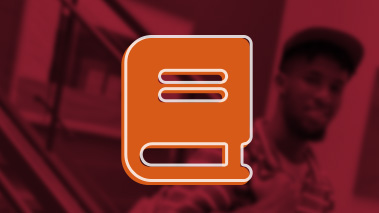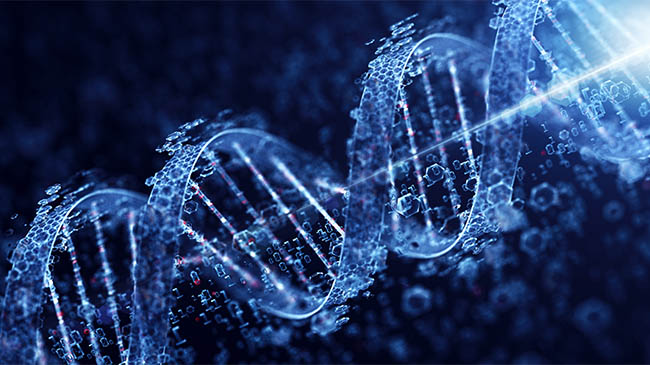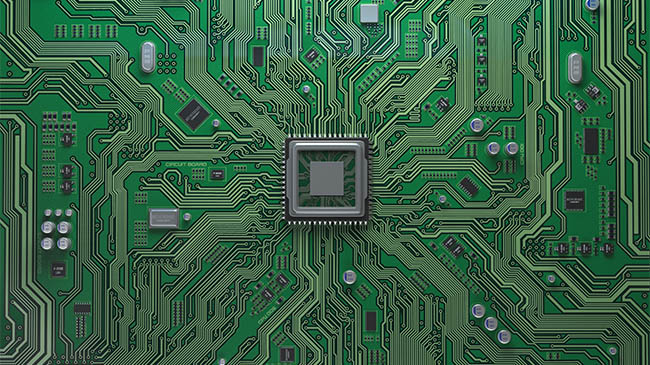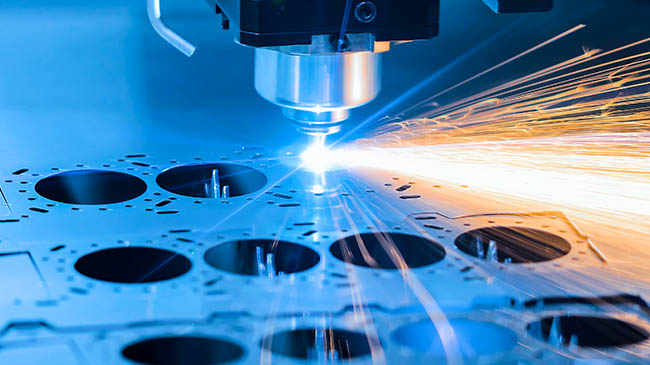Engineering
- Associate of Science (A.S.)
Program Snapshot
Your Learning Options
In-Person, Hybrid, Online
65-70 Credit Hours
Estimated Time to Complete
2 years (5 full-time semesters)
In-State Tuition Per Credit Hour
$176.00 | Calculate your costs
Why Engineering?
Discover your path to success, with the education, resources, and support you need to excel in an engineering career.
- Start your engineering education at a fraction of the cost of a four-year institution while still receiving a high-quality, rigorous academic experience.
- Take advantage of established agreements with major Virginia universities ensuring a smooth transfer process into their engineering programs.
- Study in a well-equipped MakerSpace with 3D printers, a laser cutter, and a CNC router, providing you with hands-on experience.
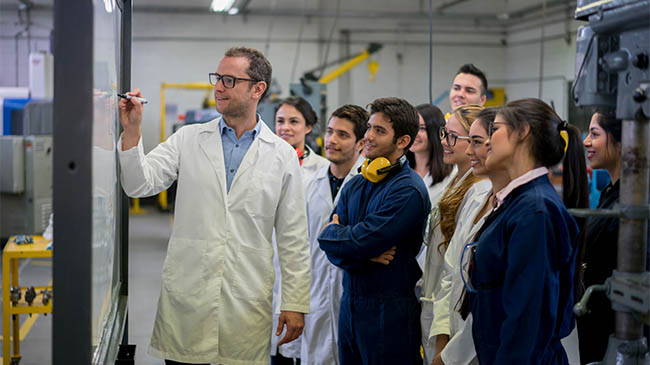
Program Roadmap
Get all the details on our Engineering program, including class sequences, admission requirements, financial considerations, and more.
Paying for College
We are committed to using all of the available funds to help you gain access to a college education. In fact, more than 91% of our students graduate without any educational debt. In 2023, Reynolds Community College students received over $21 million dollars in grants, loans, work-study and scholarships with the average aid awarded totaling over $4,000 per student.
Payment plans are offered to break down tuition payments. Textbook Assistance and Laptop Lending Programs are also available. Be sure to explore all the types of financial aid available as well!

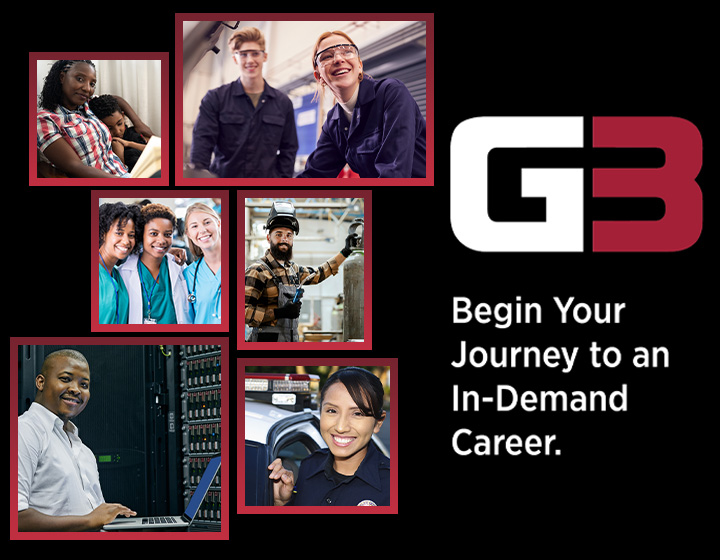
Get a Skill. Get a Job. Get Ahead.
G3 financial assistance at Reynolds can help cover tuition for select programs like this one! Starting something new or changing a career path can be scary, but if you want to earn workplace certifications or an academic degree that leads to a career, G3 tuition assistance can help remove the financial barrier of going to college.
Why Reynolds?
We are more than a community college.
Reynolds is the key that unlocks the door to your academic and professional success. Here you will find a safe place to start. We will help you explore, dream, succeed, try, and try again. Our amazing faculty and highly personalized advisors, your Reynolds Navigators, are well known for guiding you to discover that "aha moment.” That means an outstanding college experience, less debt, more freedom, and a solid start on your future.
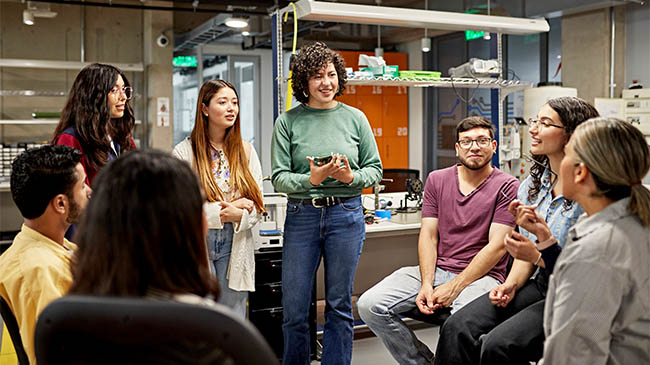
Over a decade of data demonstrates that our transfer students perform on par with those who start their education at four-year institutions, reflecting the quality and rigor of our program.
As of 2023, engineers enjoy a median salary of up to $130,000, making it one of the most rewarding professions both financially and professionally.
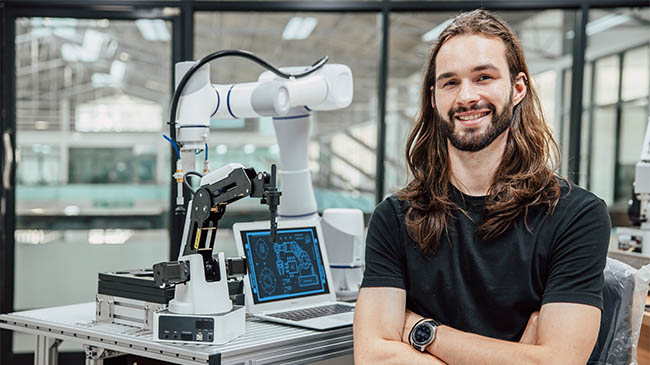
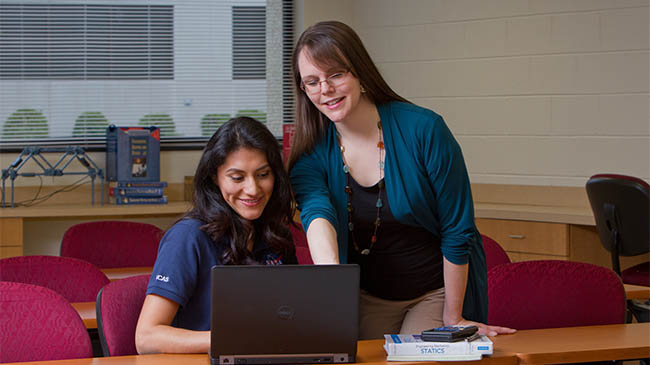
Our engineering faculty offer personalized advising to all engineering students, ensuring they receive the guidance and support necessary for academic and career success.
Don't settle for what life serves you, set a goal, and work towards that goal. You can turn things around from a bad situation and rise to the top. It may not be easy, but it can be done.
Samantha Carter
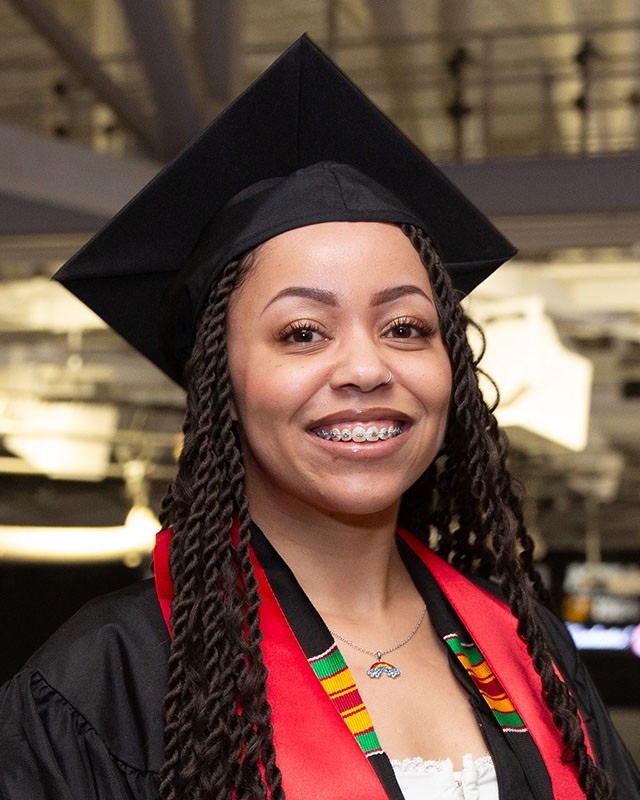
Faculty quote goes here. Adjust heading class if quote is too long.
Professor Name
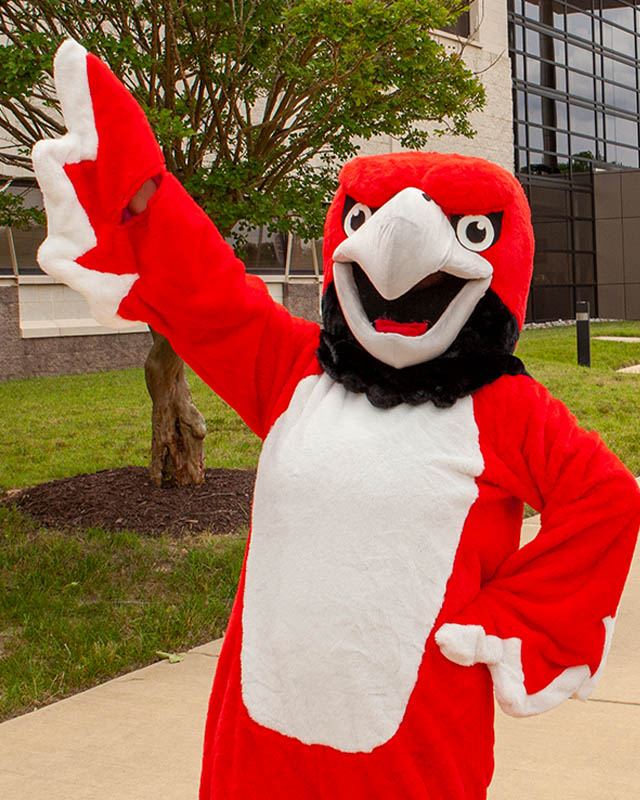
Class Highlights
EGR 124 - Introduction to Engineering and Engineering Methods
Discover the engineering profession, professionalism, and ethics, including problem presentation, engineering calculations, and digital computer applications.
EGR 121 - Foundations of Engineering
Learn about the engineering profession and its impact on society and the environment, including engineering problem solving, and the engineering design process.
EGR 122 - Engineering Design
Study engineering methods culminating in a semester-long team design project with an emphasis on engineering software.
Additional Program Information
PURPOSE: The demand for technically trained people is increasing rapidly in Virginia as well as throughout the world. The engineer is an important member of the technical team, which includes the scientist, technician, and skilled craftsman. Opportunities are unlimited for men and women in the field of engineering. Science is so diversified that one may enter almost any specialization and find employment. The preparation for the engineering profession is based on a rigorous program, especially in mathematics and science.
PROGRAM OBJECTIVES: The Associate of Science degree in Engineering prepares students to transfer to a four-year college or university and complete a baccalaureate degree in one of the following fields: aerospace, agricultural, architectural, biomedical, chemical, civil, computer, electrical, environmental, industrial, materials, mechanical, mining, nuclear, or ocean engineering.
STUDENT LEARNING OUTCOMES:
- Understand and apply knowledge of the engineering profession, professionalism, and ethics.
- Understand and apply problem solving through basic programming.
- Understand and apply basic engineering methods (i.e. problem presentation, engineering calculations, digital computer applications, word processing, spreadsheets, and elementary numerical methods).
- Understand and apply engineering problem solving techniques (i.e. defining problems, systems, and assumptions and performing systematic solutions using science and mathematics).
- Understand and perform economic analysis of engineering solutions.
ADMISSION REQUIREMENTS: General college curricular admission.
PROGRAM NOTES: Applicants shall have met with their advisor to establish a planned course of study prior to being allowed to register for courses.
Satisfactory completion of the following high school units or their equivalent, at a minimum, is strongly recommended: four units of English, one unit of laboratory science (preferably physical science), one unit of social studies, and four units of mathematics (two units of algebra, one unit of plane geometry, one unit of advanced mathematics or trigonometry and solid geometry).
This degree satisfies the requirements for the Uniform Certificate of General Studies (UCGS).
PROGRAM PROGRESSION: Please review Reynolds Policy 2-17 regarding course placement. This program requires a steady progression through at least four high-level mathematics courses, generally taken at a rate of one per semester. MTH 263 - Calculus I and MTH 264 - Calculus II are pre- or co-requisites for several engineering courses. Applicants who place into developmental mathematics will face additional mathematics courses, which do not count toward degree progress, before qualifying for MTH 263.
This program includes the courses usually required in the first two years of a baccalaureate engineering curriculum. Students should consult with their engineering advisor at the earliest possible date to acquaint themselves with the requirements of the engineering program at the college or university to which transfer is planned.
COMPUTER COMPETENCY REQUIREMENT: Students in this program will meet the college’s computer competency requirement by successfully completing EGR 121 - Foundations of Engineering.
